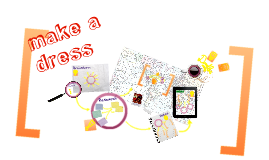Jeopardy Game Show Template
Transcript: Jeopardy Game Show Template Understanding Jeopardy Game Structure Introduction to Jeopardy Jeopardy is structured into three rounds: Jeopardy, Double Jeopardy, and Final Jeopardy. Each round features increasingly challenging questions, with point values that vary by difficulty. Jeopardy is a popular quiz game that presents questions in an engaging format, focusing on factual knowledge across diverse categories. Established in 1964, it has become a household name for both entertainment and education. Required Materials Essential materials for Jeopardy include a game board, buzzer system, and a set of question cards categorized by difficulty. Additional tools may enhance gameplay, such as scorekeeping devices. Target Audience Objective of the Game Jeopardy appeals to a broad audience, including families, students, and trivia enthusiasts. Its adaptability makes it suitable for classrooms, parties, and competitive events. The primary objective of Jeopardy is to accumulate the highest score by answering questions correctly in various categories. Players must showcase knowledge and quick thinking to outperform opponents. Interactive Learning Experience Gameplay Mechanics Player Roles Question Categories Questions in Jeopardy are organized into categories that guide the gameplay. Each category consists of varying difficulties, allowing players to select questions that match their knowledge and strategic play style, enhancing the game’s challenge and fun. In Jeopardy, players take on distinct roles as contestants and the host. Contestants compete to answer questions and accumulate points, while the host facilitates the game, presenting questions and overseeing the rules, thereby ensuring fair play and engagement. Engagement Strategies Daily Doubles Scoring System Daily Doubles are strategic opportunities within Jeopardy where players can wager any portion of their accumulated points. This element adds excitement and risk, as players can significantly increase their scores based on their confidence in the answer provided. Jeopardy's scoring system rewards players based on the value of the questions they answer correctly. Players earn points based on the assigned value of each question, which increases in difficulty, making strategic selection critical to success. Final Jeopardy Rules In Final Jeopardy, players make a wager on a single question, determining their fate based on their knowledge and strategy. The tension of the final round is heightened as players reveal their wagers, making this phase critical for determining the overall winner. Incorporating Technology Interactive Features Utilizing platforms like Kahoot or Quizizz can enhance the Jeopardy experience by integrating multimedia questions and real-time data. This not only captures interest but also facilitates instant feedback for players. Incorporate features like buzzers and scoreboards to create competition and excitement. Utilizing team-based play can also foster collaboration and enhance engagement among participants. Adaptations for Online Play Feedback Mechanisms Implementing post-game surveys or quizzes can provide insights into player experience and learning. Encouraging participants to share feedback helps refine the game format and improve future sessions. Transitioning Jeopardy for remote play requires tools like Zoom or Google Meet and interactive online game boards. This adaptation ensures participants remain engaged, regardless of physical location, by utilizing virtual breakout rooms. Preparation Tips for Jeopardy Celebrating Achievements Recognizing participant achievements through certificates or shout-outs fosters a positive environment and motivates continued participation. Celebrations can include highlighting personal best scores or group efforts to encourage friendly competition. Question Creation Crafting challenging but fair questions is essential for balance. Ensure that questions vary in difficulty to engage all players, incorporating factual content that aligns with chosen categories. Time Management Implement strict time limits for each question to maintain game pace. Use timers to keep players engaged and prevent downtime, ensuring a fast-paced and dynamic gameplay. Setting Up the Game Board Design the game board to clearly display categories and point values. Use a digital platform or physical board that allows easy visibility and interaction for all participants. Encouraging Participation Foster a collaborative atmosphere by rewarding participation with points for engagement, even for incorrect answers. This approach encourages risk-taking and enhances overall enjoyment. Choosing Categories Select diverse categories that resonate with participants' interests and knowledge levels. Popular topics may include history, science, pop culture, or literature to foster engagement.

















